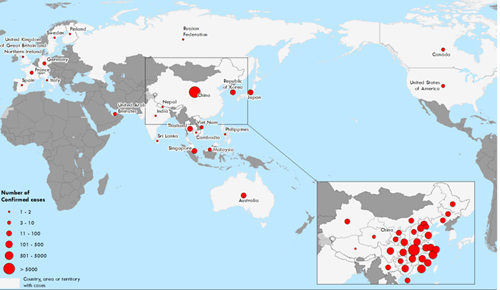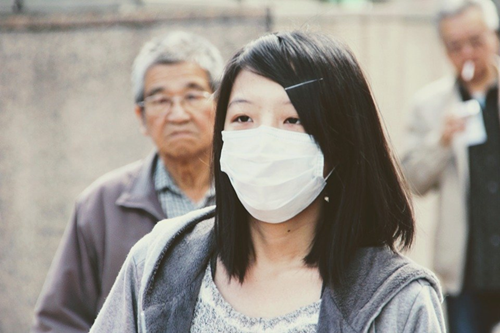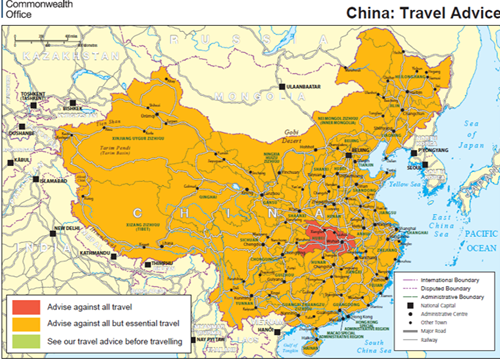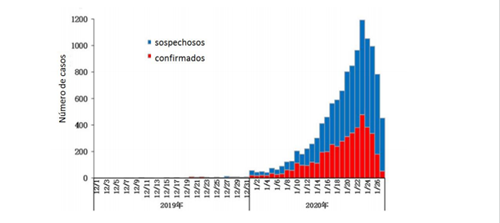On 31st December of 2019, the World Health Organization (WHO) observed that cases of pneumonia of unknown cause were detected in the city of Wuhan, Hubei Province, China.
One week later, the Chinese government confirmed that they had detected a new virus associated with the pneumonia cases. The new virus is called Coronavirus. Currently, this new disease has quickly spread to Japan, South Korea, Taiwan, Thailand, the United States, and some cases are already being studied in Mexico.

Fuente: OMS (Who.int)
At Fit2Trip we have contacted the Ministry of Health to share information and offer tips to help and prevent further spread of the virus.
According to the Italian government's Ministry of Health, the new Coronavirus (2019-nCoV) is a new strain of this vast family of viruses that has never been identified in humans before. It can cause symptoms ranging from the common cold to far more serious diseases, such as pneumonia, and in some cases, it can be fatal. The respiratory disease caused by the new Coronavirus has been called COVID-19.
After being infected, the incubation period varies from 2 to 11 days, up to a maximum of 14 days. Early symptoms include cough, sore throat, fever and difficulty breathing. In the most severe cases, the infection can cause pneumonia, respiratory failure, kidney failure, and even death. The most serious cases usually occur in elderly people or in those suffering from some other disease, such as heart, respiratory or immune diseases.
Being a respiratory virus, direct contact with infected animals or persons, for example through saliva, coughing and sneezing, or through direct contact between contaminated hands and mouth, nose or eyes increases the risk of contagion. Transmission at a distance of one or two metres, however, seems unlikely. The main route of transmission is the respiratory one, and not by touching contaminated surfaces, as recently declared by a German study according to which the new coronavirus would remain active on the surfaces for about 9 days.
As assessed by the World Health Organization, there is no restriction on travel and trade with China. However, on January 30 , Italian authorities ordered the suspension of air traffic with China. In fact, it is recommended to avoid trips to Hubei province and to postpone all unnecessary trips to the rest of China. If you decide to travel anyway, it is advisable to follow the hygiene measures and get vaccinated against the flu at least two weeks before leaving.

- Hygiene measures:
In addition, you should avoid visiting farms, markets, and barns, and limit contact with animals.
Those travellers with pre-existing diseases or conditions (for example, chronic diseases such as diabetes, kidney failure, chronic lung disease, immunodeficiency) are more likely to develop serious disease if infected with 2019-nCoV.
If in the two weeks following your return to Italy you experience symptoms related to a respiratory infection, such as fever, cough, sore throat, you should immediately seek medical assistance, informing the doctor of your recent trip, and minimize the risk of contagion.
Since January 22nd, the Chinese authorities have implemented preventive public health measures, such as the mandatory quarantine of people who have visited Wuhan and Hubei province, the supply of masks for the population and the total closure to the public and air traffic since January 23rd to and from Wuhan.
Furthermore, public places such as cinemas, cybercafés, cultural and tourist centres have been closed and all school activities have been suspended.

Fuente Gov UK
The United Kingdom Foreign and Commonwealth Office (FCO) advises against all trips to the province of Hubei due to the outbreak of coronavirus.

Figure 3: CDC China (Chinadc.cn)
If you are already in China, you must leave as soon as possible. In fact, some airlines such as British Airways and Virgin Atlantic have announced the suspension of flights to and from mainland China.
Since January 31st, some of the employees of the British Embassy and consulates have been repatriated from China.
If you plan to travel abroad for tourism or for any other reason, the Ministry of Foreign Affairs and the European Union recommend to register your personal data with the Travelers Register, in order to make it easier to find information in case of emergency.
Due to the current public health situation in China, if you are thinking of traveling to East Asia you should consider all the information provided and consult your travel insurance agent to find out which destinations in East Asia are covered by your insurance and which ones are not. It is generally considered that those travellers who intentionally expose themselves to the risk of contagion will not be able to benefit from their travel insurance: all the expenses related to travel, hospitalization, transfer or repatriation will be borne by the individual and not by the insurer.
Fit2Trip offers travel insurance for families, couples, individual travellers and people with pre-existing medical conditions such as asthma, cancer, heart disease, and others. You can choose between single health insurance policies or multi-risk policies, in addition to the basic, standard or premium coverage level. You can also choose between single or multi-trip travel insurance, and add summer activities.